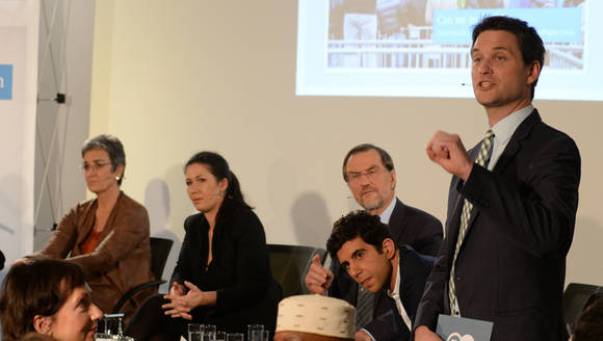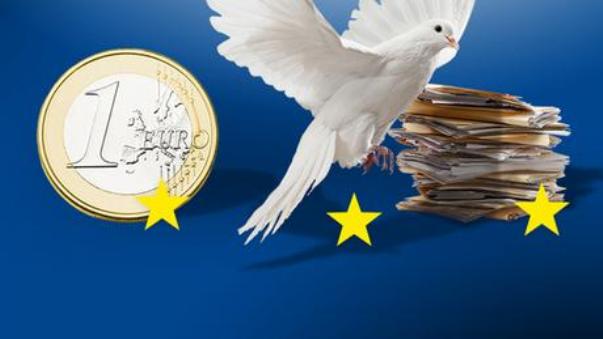Search Results for Tag: European Parliament
DW battles fake news with new verification platform
DW recently introduced a new media verification platform, Truly.Media, that enables media producers and civil society groups to quickly verify news reports circulating on social media. The platform was developed in partnership with the Greek software development company Athens Technology Center (ATC).
Truly.Media’s first major client is the world’s leading human rights advocacy group, Amnesty International (AI).
“When inconvenient truths prompt public officials to cry ‘fake news’, or when content posted on social media purports to show something it doesn’t, Amnesty International needs to be ready to respond, based on rigorous, methodical research and verification methods,” said Tirana Hassan, Amnesty International’s Crisis Response Director, in a statement on AI’s website.
When important news stories go viral on social media, there is a flood of information that is not always accurate, or even worse, manipulated. Truly.Media works by enlisting teams of journalists and editors, along with automation tools, to verify information in real time.
It was recently introduced to the European Parliament in Brussels, where Members of Parliament welcomed it as an impressive tool that will have real benefits for poltical discourse. As the platform shows positive results with AI, more clients are sure to follow.
Truly.Media has been in development since 2016, and was produced with the support of the innovation fund from the Google Digital News Initiative and EU research financing.
DW provides a balanced perspective on the refugee crisis
The continuing influx of refugees into Europe has presented a divisive challenge to the EU, with discussions of entry quotas, border controls, blame and shame scattered across newspapers, websites and nightly broadcasts all over the continent. Germany and its refugee policy have been placed in the heart of the storm.
Recently in Brussels at the Representation of North Rhine-Westphalia to the European Union, DW hosted a panel discussion, “Can we make it? The impact of the media on Europe’s refugee crisis.” Experts, politicians and journalists explored how the ongoing refugee crisis in Europe is challenging the EU and what role the media plays.
The discussion was attended by around 200 people and presented unique and valuable perspectives from European politics and media.
Ulrike Lunacek, a European Parliament Vice-President from Austria, addressed the issue from the perspective of EU politics, saying that the refugee situation itself didn’t constitute a crisis, but rather lack of political will in the EU.
A plurality of ideas from different European media at the discussion showed that the portrayal of the refugee crisis differs from country to country. Jaafar Abdul Karim, the host of DW’s Arabic talk show Shabab Talk, pointed out that it was important for the media to get the point of view of refugees, rather than only reporting about them. Karim has produced a series of video blogs for DW and Spiegel Online where he frequently speaks with refugees. French journalist Adeline Percept said that French media differs from Germany, with reporting that tends to be “one-sided.” The Polish journalist Piotr Jendroszczyk said that the media in each EU member state was depicting a “different reality” of the refugee situation.
As Germany’s representative in the international media landscape, DW has an important role in explaining and clarifying the complicated implications of the refugee crisis, along with providing hard news reports of developing situations at borders and in refugee centers.
DW has even gone a step-further and provided an online guide to Germany for refugees in Arabic, Dari, Pashtu, Urdu, English and German. The website explains everything from visa and housing regulations to adapting to cultural norms and learning the language. As more refugees continue to arrive in Germany and the humanitarian challenges are addressed, the political discussion continues.
Whatever reality is chosen to be portrayed, the refugees are continuing to arrive and the EU continues to face a great challenge.
An edited version of the discussion will be aired December 15 on DW.
Your chance to experience the Eurovision Debate live
On May 15, the first ever interactive live debate between candidates competing for the EU’s top position will be televised, streamed and broadcast across Europe and the world. DW is one of only two international broadcasters that will televise the event to global audiences. The Eurovision Debate will allow European voters to ask direct questions via social media to the candidates for President of the European Commission. It is also the first debate where each of the five major candidates will be present.
With DW, audiences all over the world can directly experience European democracy and understand how this oft-perplexing system functions from the inside. DW has also created a special EU election web platform packed with multimedia content covering every angle of the elections. Issues include an expert discussion on lobbyism in the EU or a report on the effects of the Euro crisis.
The 2014 European elections are the first where the president of the Commission will come from the parliamentary party which receives the most votes, thus for the first time including the European electorate in deciding who will be in charge of the EU’s most powerful office. DW will continue to do its part in covering the elections while helping people all over the world understand how the EU operates and what issues are valued by Europeans.
The EU parliamentary elections run from May 22 to 25, the Eurovision Debate will be televised live on May 15 at 20:00 UTC.







Feedback